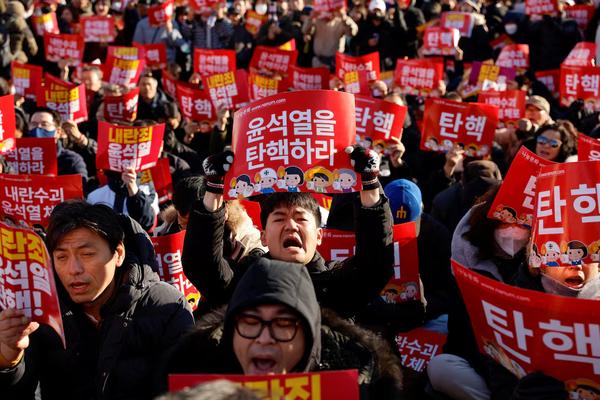Goldman Sachs Warns of Economic Risks Amid Political Instability
Goldman Sachs has issued a warning about the heightened economic risks in South Korea due to the ongoing political turmoil, including the recent martial law declaration and impeachment proceedings against President Yoon Suk Yeol. In a report titled "The Impact of a Short Martial Law Situation," senior economist Kwon Koo-hoon maintains the forecast for South Korea's growth rate at 1.8% for 2025, which is lower than the market average. However, he emphasizes that "the risks are increasingly skewed to the downside."

Kwon explained that previous incidents, such as the impeachment of former Presidents Roh Moo-hyun and Park Geun-hye, did not significantly impact the growth rate. He noted, "The South Korean economy grew in 2004 due to the boom in the Chinese economy and in 2016 due to the strong upward trend of the semiconductor cycle." However, he pointed out that the current situation is different. "Conversely, in 2025, South Korea, along with other export-oriented economies, is facing external headwinds from the slowdown in the Chinese economy and the uncertainty of U.S. trade policies," Kwon stated.
In the short term, Kwon expects the "caretaker government" to focus on securing and maintaining financial market and macroeconomic stability while implementing existing policies. He highlighted the potential role of the National Pension Service's large overseas asset holdings in supporting the securities and foreign exchange markets in the event of excessive market instability and a sharp decline in the value of the won. "There is sufficient room for monetary and fiscal policy," Kwon added.
Kwon further elaborated on the measures being prepared to address potential economic instability. "Emergency liquidity support and additional monetary easing measures, such as the additional policy rate cut announced at last month's Monetary Policy Committee meeting, are already being prepared," he said. He also mentioned that once political stability is restored and potential transitional measures become clearer, future fiscal easing could support growth without threatening fiscal sustainability, given the relatively low government debt.









Comments